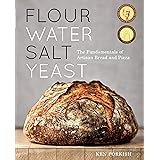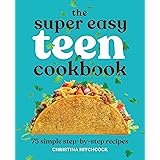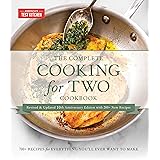It’s easy to get confused by food labels. Many people wonder about different diets. Understanding these terms is simple. This post clarifies two main eating styles. We will explore what it means to be vegetarian and non-vegetarian.
Understanding Vegetarian Diets
The video above gives a basic definition. Vegetarians eat only vegetables. They do not eat eggs, meat, or fish. This simple rule has more layers. There are different types of vegetarianism.
Exploring Types of Vegetarianism
Some vegetarians include dairy. They also eat eggs. This is called Lacto-ovo vegetarianism. It is a common choice.
Other vegetarians avoid eggs. They still consume dairy products. This diet is known as Lacto vegetarianism. Milk, cheese, and yogurt are common foods.
There are also Ovo vegetarians. They eat eggs. However, they do not eat dairy products. This choice focuses on specific animal products.
The strictest form is veganism. Vegans avoid all animal products. This includes meat, fish, eggs, and dairy. They also skip honey and gelatin. Many avoid animal-derived clothing too.
Exploring Non-Vegetarian Choices
A non-vegetarian diet is also easy to define. People following this diet eat animal products. This often includes meat, fish, and eggs. The video describes these foods clearly.
What Non-Vegetarians Eat
Non-vegetarians consume various meats. Chicken is a popular example. Beef and pork are also common. Lamb and turkey are often included too.
Fish and seafood are part of this diet. Salmon, tuna, and shrimp are good examples. These offer different nutrients. They add variety to meals.
Eggs are another key food source. They are versatile and nutritious. Many non-vegetarians enjoy them regularly. Eggs can be part of any meal.
Reasons Behind Dietary Decisions
People choose their diets for many reasons. These choices are often personal. They reflect beliefs and values. Let’s look at common motivations.
Why Choose a Vegetarian Path?
Some choose vegetarianism for health. Plant-based diets can be beneficial. They often have less saturated fat. They are also rich in fiber.
Ethical concerns drive many. They believe animals should not be harmed. This commitment is very strong. It shapes all their food decisions.
Environmental impact is another factor. Meat production uses many resources. It contributes to greenhouse gases. Choosing plants helps the planet.
Religious beliefs play a role. Some religions promote plant-based eating. This is often for spiritual reasons. It connects food with faith.
Why Choose a Non-Vegetarian Path?
Taste and culture are big factors. Many enjoy the flavor of meat. Traditional dishes often feature it. These are part of cultural heritage.
Convenience is also important. Non-vegetarian options are widely available. Restaurants and stores offer many choices. This makes meal planning easier.
Nutritional needs guide others. Meat is a complete protein source. It provides essential amino acids. It is also rich in iron and B12.
Personal preference is key. Some simply prefer animal products. They find satisfaction in these foods. It is a matter of individual taste.
Important Nutritional Considerations for Both Diets
Regardless of the diet, balance is essential. Both vegetarian and non-vegetarian diets can be healthy. They can also be unbalanced. It depends on food choices.
Nutrient Focus for Vegetarians
Vegetarians must ensure enough protein. Lentils, beans, and tofu are great. Nuts and seeds also provide protein. A varied diet helps cover needs.
Iron and Vitamin B12 need attention. Leafy greens are good for iron. Fortified cereals help with B12. Supplements might be necessary for vegans.
Nutrient Focus for Non-Vegetarians
Non-vegetarians should choose lean meats. These have less saturated fat. Portion control is also important. Too much red meat can be unhealthy.
Fiber intake is crucial. Non-vegetarians must eat enough fruits. Vegetables and whole grains are key. These ensure good digestive health.
Both diets benefit from variety. Eating many different foods is best. This provides a wide range of nutrients. Healthy eating is achievable for everyone, whether they choose a vegetarian and non-vegetarian lifestyle.











